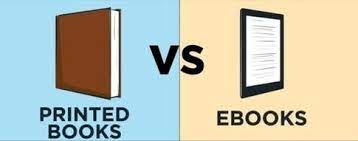Lindsay R
Watching newspaper journalists uncover a nationwide fraud scandal that affected the welfare of civilians was one of the most engaging yet heartbreaking documentaries I have watched. Colectiv shocked me on many levels, but what surprised me the most was how much my perception of journalism changed.
My opinions of journalism (mostly American journalism) are very harsh to say the least. Especially with the birth of the internet. Bias in the media is a huge issue. The fact that there are only a handful of unbiased news outlets just shows how much the average American craves to hear the news that they only want to hear. Fox News and CNN are notable examples of why bias is hurtful. Both these news outlets cater to the two main American political parties, however, only cater to the party they favor. Fox News only ever reports stories that favor the Republican standpoint or manipulates the story to show its bias. This idea of bias also branches off to the idea of “clickbait” titles, untrustworthy stories and radicalizing political news. There is also an extremely broad definition of news, with some people debating whether pop culture news outlets are real journalism. Personally, it is quite sad to see some people knowing more about the newest episode of Big Brother than paying attention to current events. I distinctly remember when Ukraine Crisis finally began, people were still talking about how the Rams beat the Bengals in football rather than the genuine war that was beginning to unfold. A handful of people around the globe also tend to get their “trustworthy” news from social media platforms like Twitter or Instagram. I will gladly admit that I have indulged in pop culture, however, there is a fine line between entertainment and current events. I faithfully could go on and on about how many problems there are with modern-day journalism. Overall, the main issue with this type of journalism is the amount of corruption.
The journalist group, The Romanian Sports Gazette were the ones to discover the Hexi Pharma fraud that killed 30 + Romanians in hospitals. They uncovered how Hexi Pharma was diluting disinfectants and paying off the health administration to keep quiet. One of the most shocking things to see were the maggots that were growing on patient’s burn wounds due to the diluted disinfectant. Although you cannot deny that this uncovering was an amazing discovery, you are probably wondering as to how and why this is so much more groundbreaking than American Journalism. You see, the difference between American journalism and what the Romanian Sports Gazette did was that the Romanian news outlet actually cares about the people they are catering their news to. The Gazette’s only motive was to figure out why the Colectiv burn victims were dying in hospitals. The Gazette was fighting the corruption in the government rather than being the corrupt ones. Seeing the families and the victims somewhat get justice, as well as sparking a nationwide uproar, makes me wish that future journalism will approach news with the same motives.
What are your opinions on journalism? Are they as harsh as mine, or do you have other thoughts?




